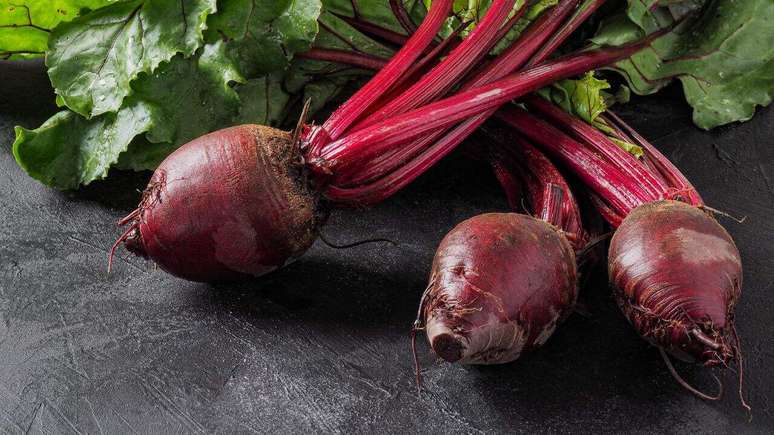The health benefits of beetroot are numerous; discover some of them and how to consume this food in the best way.
A beet It is a food that divides opinion: some love it, others hate it. However, if you are part of the group that likes this vegetable, but does not consume it that much on a daily basis, know that it might be a good idea to change the situation. After all, it is so full of benefits that it should appear frequently on your menu.
Then Lucas Borda, nutritionist at the Núcleo Adventista Silvestre de Saúde e Prevention, in Botafogo, lists some of the benefits of food:
- Lower blood pressure, due to the high concentration of nitrates, which convert into nitric oxide in the body and are vasodilators, ensuring better blood circulation
- Improved performance in training (for those who practice constant physical activity), also linked to nitrates
- It strengthens the immune system, as it is rich in vitamin C, vitamin A and zinc, as well as being rich in antioxidants
- It helps you lose weight, as it is a food rich in fiber, which helps you feel full and consequently eat less. Not to mention that 100 grams of raw beetroot provide only 43 calories
How to consume
There are several ways to consume beetroot to get the benefits of the vegetable. However, it is best to choose those that maintain all the nutrients present in the food. To do this, you can, for example, eat it raw, in pieces or grated. Another idea is to use it in juices, but in this case you have to be careful.
“All the benefits of beetroot are obtained through juice, as long as you do not filter the juice. The filtering process will eliminate all the fibers contained in the beetroot, which will be negative, since they help both satiety and improve gastrointestinal health,” advises Lucas Borda, who is also a nutritionist at the Adventist Silvestre Hospital, in Itaboraí.
If you plan to cook beetroot, remember to try to use a shorter process where the food is not in contact with heat too much, so as not to lose its healthy properties.
Are there any contraindications?
In general, there is no harm in beetroot. However, there may be contraindications depending on the specific health conditions of the individual.
“In case of renal lithiasis (the famous kidney stones), it is good to avoid foods that contain oxalate (such as red beetroot), because when this compound is consumed in excess it can worsen the case of lithiasis. But this only in severe cases”, explains the specialist.
Source: Terra
Ben Stock is a lifestyle journalist and author at Gossipify. He writes about topics such as health, wellness, travel, food and home decor. He provides practical advice and inspiration to improve well-being, keeps readers up to date with latest lifestyle news and trends, known for his engaging writing style, in-depth analysis and unique perspectives.








